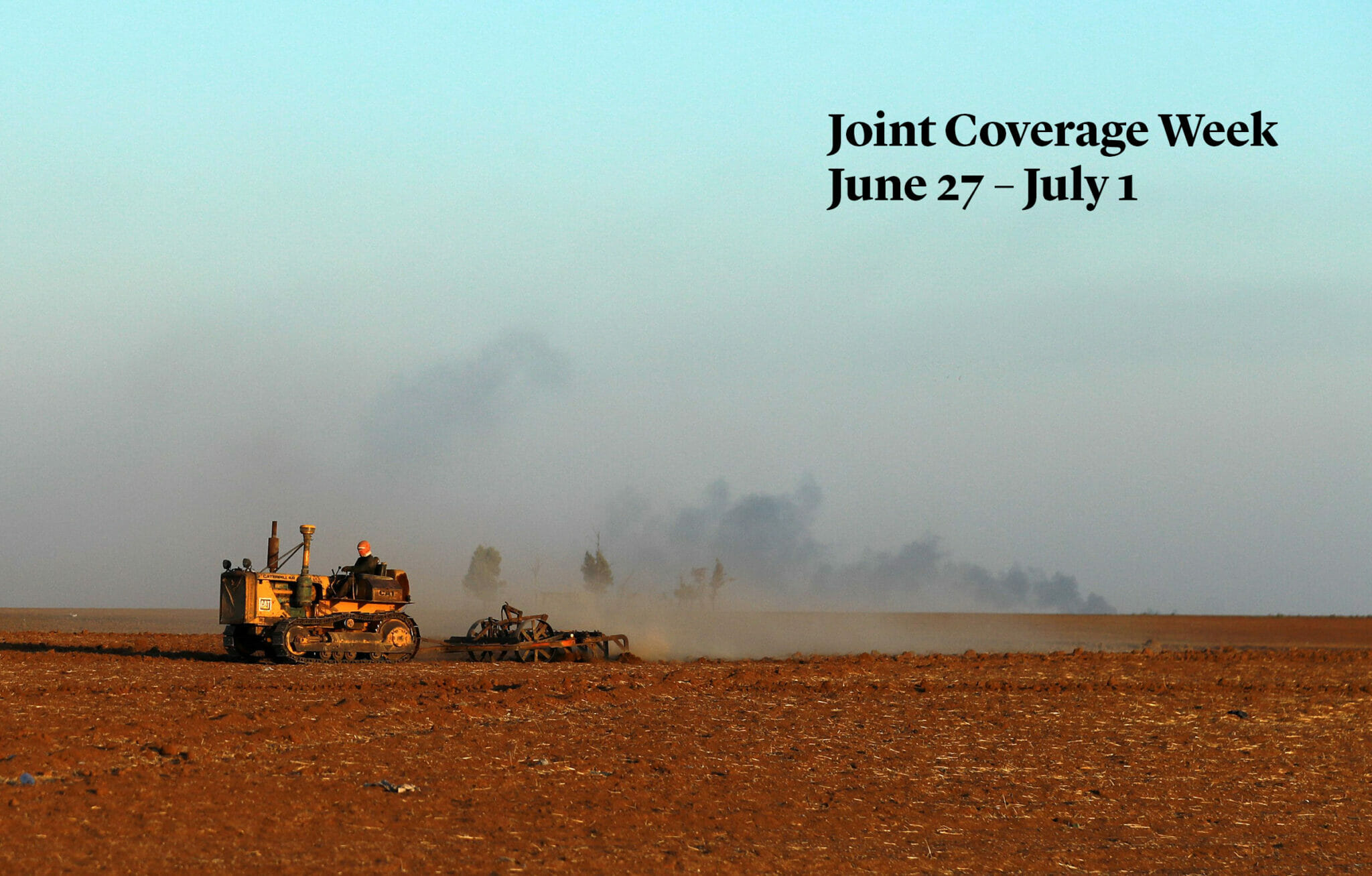From June 27 to July 1, Covering Climate Now and our news partners undertook another of our signature joint coverage weeks, focused this time on an aspect of the climate story that unquestionably concerns us all: food and water.
Why food and water? Already, climate change is taking a tremendous toll on the world’s food systems. Environmental disasters and erratic temperatures have laid waste to crops, and rising seas are salinating coastal soils. The consequences for farmers and global food supplies are obvious, as are the knock-on effects for hunger, security, and the cost of food. As usual in the climate story, it’s those who are already disadvantaged who will be hurt the worst.
Food production and consumption practices can also contribute to mitigating climate change. Presently, food production accounts for roughly a third of humanity’s annual greenhouse gas emissions. Whatever path we follow to reduce overall emissions, reenvisioning how we feed ourselves must be part of it — a fact which invites exciting innovations, from climate-friendly crops and streamlined supply chains to no-till farming, regenerative agriculture, meat alternatives, reductions in food waste, and the tried-and-tested agricultural practices of Indigenous peoples worldwide. Each of us can help at home, too: Some climate solutions are no more complicated than taking a fresh look at our shopping lists and tweaking the meals we whip up in our kitchens.
CCNow’s ‘Food & Water’ joint coverage week explored these subjects and more.
Materials for ongoing use and review from the week:
- Not one but TWO newsmaker interviews. CCNow partners spoke with Gabriela Bucher, executive director of Oxfam International, and Jennifer Morgan, climate envoy for Germany and former head of Greenpeace International, about rising global hunger.
- Expert press briefing. How we grapple with the challenges that climate change presents for food and water is a complex question. To get journalists up to speed, a distinguished panel of experts explained climate’s role in the global food crisis, how reforming water use can pay vast climate dividends, and how “regenerative agriculture” — farming practices that prioritize soil health and biodiversity — can be better both for the planet and for farmers’ bottom lines. Watch here.
- Daily mailings. Each day, we sent a roll-up of new coverage by our partners, including some stories that will be available for republication. We also highlighted great content that our partners have already published on key aspects of the food and climate connection, as well as resources to support your own reporting. You can review those recap mailings here: Day 1, Day 2, Day 3, Day 4, and Day 5.
- Social media events. Throughout the week, we hopped on Twitter Spaces and Instagram Live to speak with journalists about their work on the food and climate connection. Listen to recordings from our Twitter Spaces on justice and farming practices. Follow us on Twitter and Instagram — and tune in for practical tips and insights from reporters at the forefront of these issues!
This was CCNow’s sixth joint coverage week since our founding in 2019. During these weeks, our partner news organizations boost coverage of a critical aspect of the climate story — including, in previous joint weeks, climate solutions, politics, and the lived experience of climate change. News cycles move fast, and often it’s difficult for even very important stories to break through the noise. Our joint weeks aim to spur a critical mass of coverage that makes the climate story impossible for audiences to miss.

